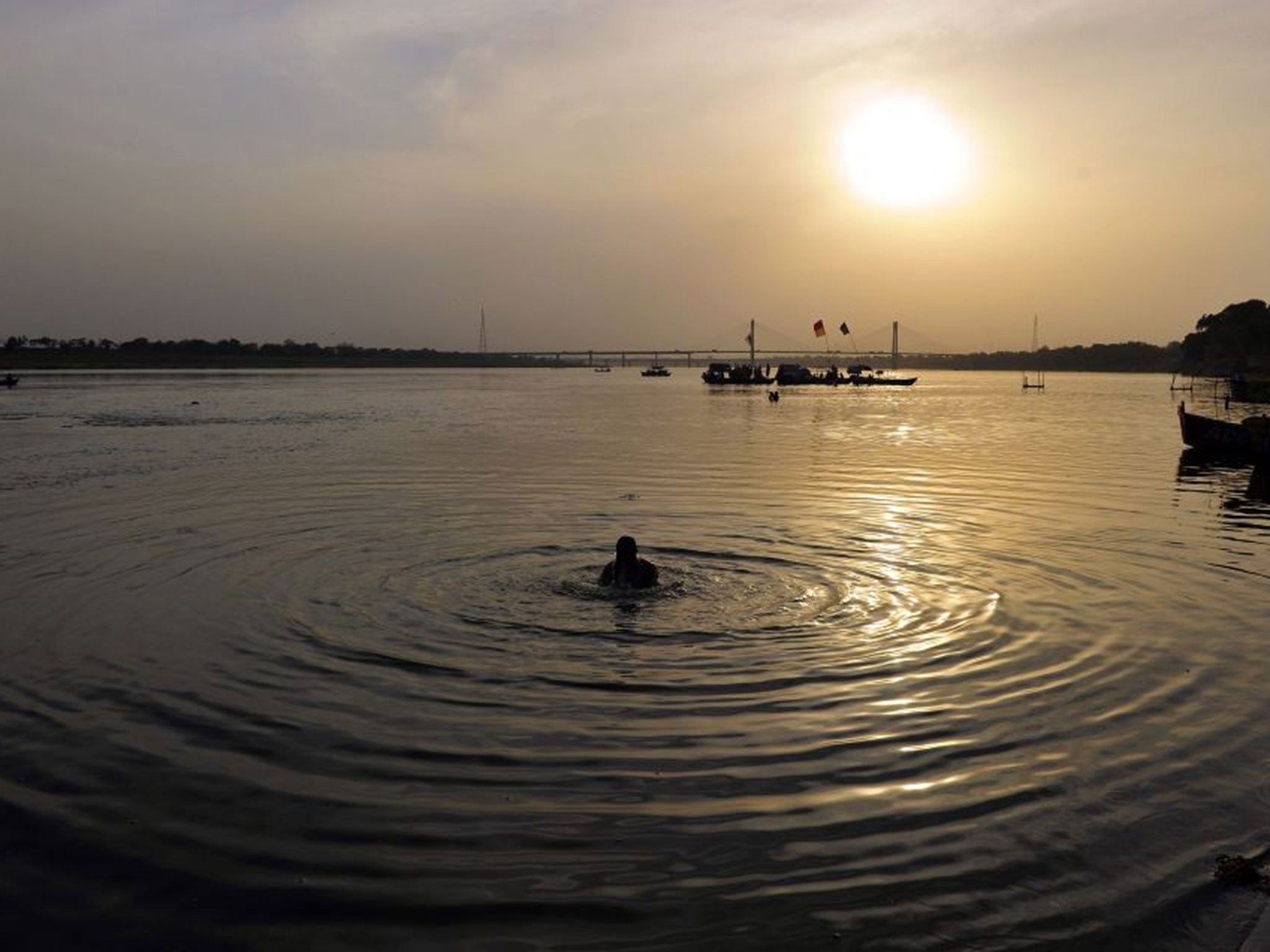The hunt for the Saraswati: India launches search for its famed lost river, but not everyone is happy
Some commentators have suggested the move is part of a Hindu nationalist agenda

The Indian government is poised to launch a project to try to trace and even revive a legendary river mentioned in ancient Hindu texts. But activists have suggested the authorities should instead focus their energies on saving India's existing and often highly polluted waterways.
Over the years there have been several attempts to identify the Saraswati river, referred to several times in the Vedas, the seminal texts of Hinduism, yet experts say if it existed the waterway must have dried up thousands of years ago.
But last week a minister in the government of Narendra Modi, elected in a landslide victory earlier this year, said she wanted to locate the course of the river and see if it could be made to run again. Some commentators have suggested the move is part of a Hindu nationalist agenda.
Uma Bharti, the water resources minister, said there was considerable evidence about the course the river had followed and the government was trying to "trace the route". "The Saraswati is not a myth but scientific evidence is now available to prove its existence," she added.
There have been efforts to identify and locate the course of the river for more than 100 years. Many scholars believe the Ghaggar-Hakra river, which flows after the monsoon from the state of Himachal Pradesh towards Rajasthan, may be the original river, but that for some geological reason its water course dried up. Last year, the Indian Space Research Organisation carried out a project to try to plot the course of the Saraswati, using satellite data.
Many devout Hindus believe it joins the confluence of the sacred Ganges and Yamuna rivers at Allahabad, where the huge Kumbh Mela pilgrimage converges every 12 years .
Ms Bharti said she had instructed officials to test water samples from a well inside Allahabad Fort, a 16th-century building located close to where the Yamuna and Ganges meet.
The announcement came as a response to a question from a member of Mr Modi's Bharatiya Janata Party, Ratan Lal Kataria. Mr Kataria has called for the establishment of a special body to oversee the search. Experts have questioned both whether it is feasible to revive the Saraswati and also whether such a project is a good use of public resources.
Professor Chaube Umesh Chandra, a water resources specialist from the Indian Institute of Technology at Rorkee, said he had not studied the Saraswati, but that a river developed its course over hundreds or thousands of years: "Whatever happened to that river, I don't think it can he revived."
Souparno Banerjee, a spokesman for the Centre for Science and Environment, a Delhi-based research group, said the government would be better advised to focus on maintaining existing watercourses. He said cities such as Delhi, with a population of up to 25 million, put intense pressure on water resources.
"Rivers and water bodies have become polluted," he said. "We would be better concentrating on what we have. We should preserve the rivers now rather than going after something mythological."
Swapan Dasgupta, a journalist and commentator who has been largely supportive of Mr Modi, said he did not see the attempt to locate or revive the Saraswati as a "saffron", or Hindu, project. "It's a historical project. I don't see what people are making such a big deal about," he said.
As part of her portfolio, Ms Bharti has also been tasked with cleaning up the Ganges. Last week India's Supreme Court asked her department why, given the government's commitment to rejuvenating the river, it had not started to do so.
Ms Bharti said she would follow every instruction from the court, adding: "The rejuvenation … is one of the most important priorities of the government."
Join our commenting forum
Join thought-provoking conversations, follow other Independent readers and see their replies
Comments